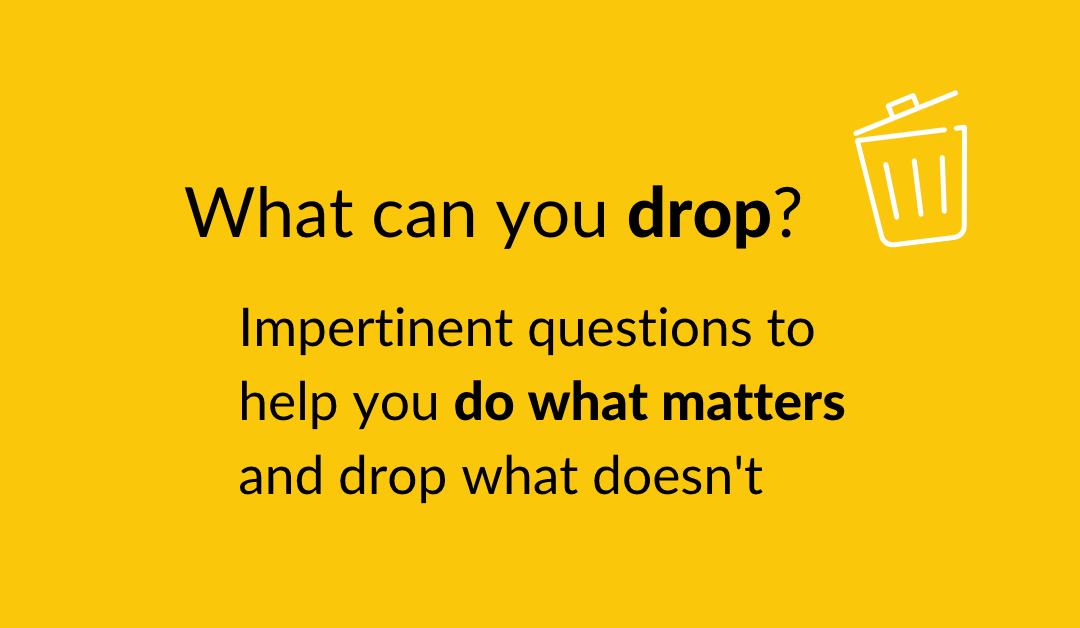Do you ever look back at a thing you did/made/said and think: cripes, that was risky? I’ve noticed that many of the leaders I work with don’t. (Or not regularly.) Not because they’re risk-averse, but because risk is just part of how they roll.
They might not dwell on it, but the big stuff is hard to miss: experiments with cross-industry collaborations[1], founding start-ups, even delivering life saving vaccines in lockdown.[2]
But not all risk is so well signalled. Not all of it is so swiftly noticed. And not all risks are ones you actually choose.
Notice what you choose
Noticing is the most versatile and least glitzy of superpowers. It’s genuinely hard to make it sound exciting. But paying attention to the risks you’re taking, or asking your team to take, can be revelatory.
It’s not just about what and how much, either. Notice which risks are chosen, and which aren’t. Notice the balance between them. That balance matters. It has an impact not just on how much risk you take, but how you take risks, and which ones, and the degree of effort you invest. More than anything, it’s hard to take more chosen risks if your energy is tied up in all the unchosen ones.
🧐 Get curious about your unchosen risks
Some unchosen risks are a response to uncertainties beyond your control. Others might be consciously chosen – just not by you. Either way, get curious about where you’re experiencing unchosen risks in your work, home, health, family, community, environment, or elsewhere. Look beyond the obvious, too. What’s slipping under your radar? What are you downplaying even though it’s consuming significant energy?
Get curious too about where you can exercise choice within the unchosen. Which unchosen risks might you be able to mitigate? How might you influence their progress or outcomes? And which might actually give you some unexpected space to play. Sometimes what you don’t choose can be just what you need.
🧐 Get curious about your chosen risks
Intentional risk can be thrilling. (Provided you remember that not knowing the outcome is what actually makes it a risk.[3]) So get curious about where you’re choosing to take risks. What are your big gambles? Where are you running test—learn—adapt style experiments for small, swift and persistent progress?[4] Which bits of you could withstand a bit more risk? And which bits need a lie down and some time out?
Get curious too about what happens as a result of these risks. What are you noticing, what are you finding out? How it is shaping and creating who you are – and who you might become?
🧐 Get curious about your team’s risk balance
What feels risky to you might not to your team. But also: vice versa. So get curious, about the team as a whole, and as individuals. What is the team’s balance of chosen versus unchosen risk? Who is currently drained by unchosen risk that’s nothing to do with work? How might you reduce or redistribute some of their chosen risks?
Get curious about where they lack risk, chosen or otherwise.[5] Which risks are the team aching to take? Who is desperately craving more chosen risk, or risks beyond your team? Where are you unwittingly heaping more unchosen risk on your team, or reducing their space for chosen risk? And who is choosing risks, and for whom?
Run a risk audit (not that sort)
You’ll find chosen and unchosen risks almost everywhere in response to this VUCA, post-pandemic, gen AI world. And since merely being human comes with its own mess, delight and tragedy, there’ll be plenty of both in the analogue world, too.
So run a current risk audit.[6] Which apply to you, which to your team? Which are chosen, or not, and by whom? Where else might you look? Getting curious might not change the choices available to you right now, but it might help you decide between them with greater clarity.
Keen to get curious and fancy a spot of help?
Get intensely curious about who you are, who you’re not, and what actually matters with Impertinent Questions. My nosiness meets your context each weekday for a month.
Get curious with The Curious Leader newsletter direct to your inbox. Longform, practical, personal opining on curiosity in leadership. Like today’s on FOBFO-busting, or this one on owning your success.
FOOTNOTES
1 Music streaming and healthcare, in case you wondered. Bewildering but also, it transpired, a stroke of genius.
2 An unexpected delight amidst the awfulness of the pandemic was being able not only to thank them, but to pass on the thanks of the nurse who gave me my first jab.
3 If you could guarantee that it wouldn’t be a risk. Which is surely obvious, and yet so frequently forgotten. Weird. 🤷♀️
4 This kind of experimenting enables you to take small risks and learn fast so that you de-risk the big risk. Intriguingly, it’s not uncommon for teams to launch straight into the massively risky big risk because the much small risk of experimenting feels… too risky. 🙃
5 Unchosen risk is part of working life (as well as life life), so protecting your team from it isn’t terribly helpful. Luckily, there’s usually plenty to go round.
6 A short, regular audit that’s current is often more useful than the big the review that’s out of date by the time it’s finished. Besides, while it’s tempting skip ahead to the sunlit future uplands, but actually, what you’re experiencing now will influence what happens next.








